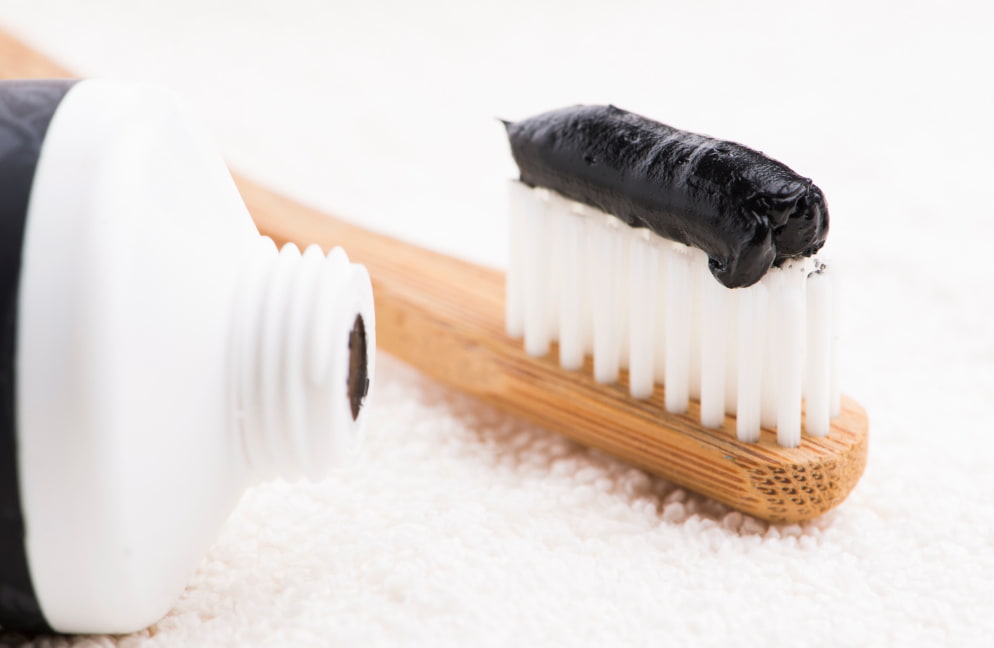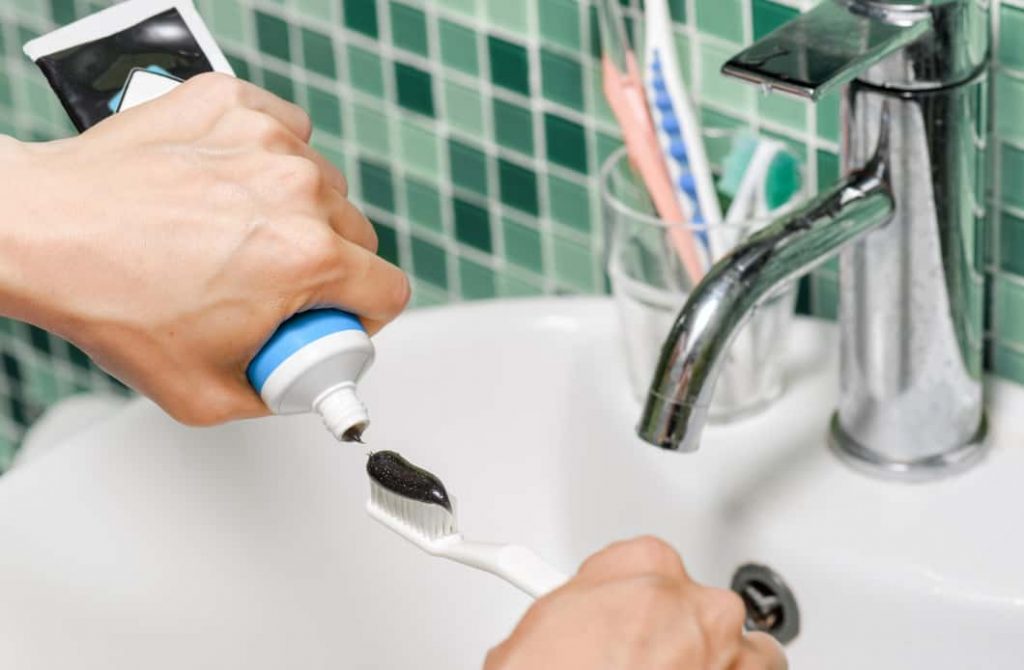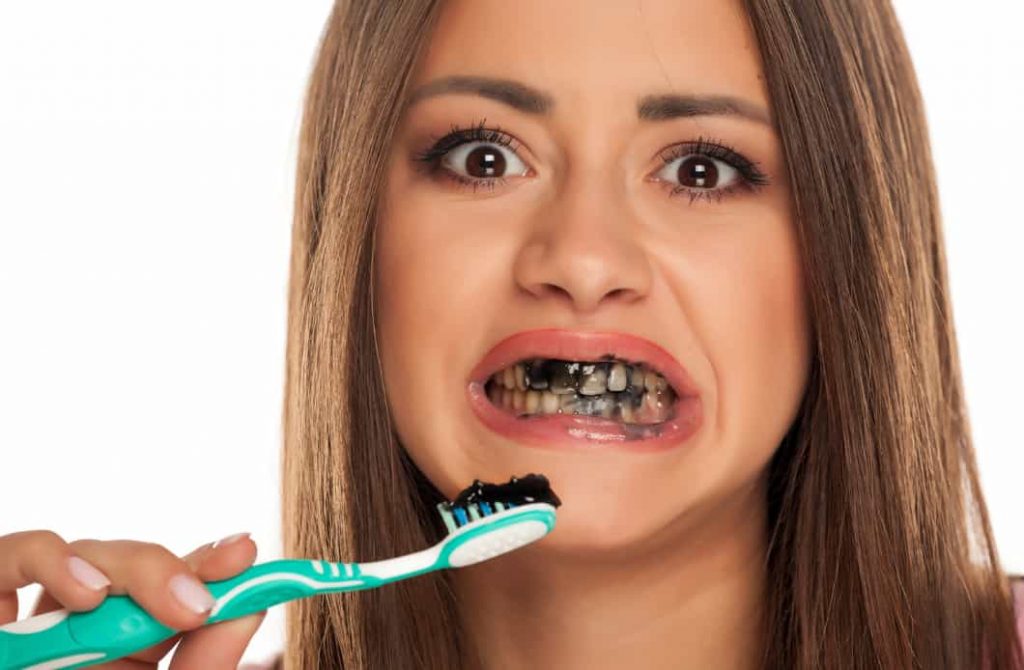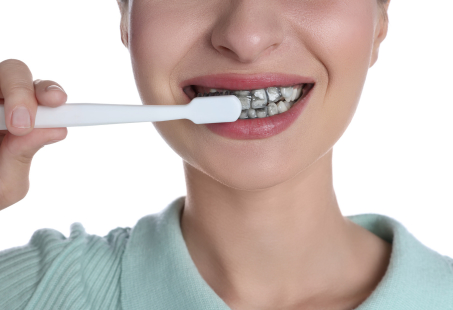From face masks to shampoos, charcoal has left its mark in the world of beauty for its purported “detoxifying” effect. It’s said to absorb impurities, leaving an unclogged and squeaky-clean surface behind. Unsurprisingly, it’s also found its way into many oral healthcare products, such as charcoal mouthwash, charcoal-infused dental floss, and, of course, charcoal toothpaste.
Charcoal toothpaste has particularly taken off on social media, where many people have tried it as a way to “naturally” and affordably whiten their teeth. But while charcoal toothpastes are hailed by some for their benefits, others are unsure of their effectiveness and safety. This begs the question: Are charcoal toothpastes even worth buying in the first place? Let’s find out!
Does Charcoal Toothpaste Actually Whiten Teeth?
Charcoal toothpastes might not whiten the teeth in the traditional sense. They may, however, make the teeth look cleaner by getting rid of surface stains. This is because the activated charcoal in toothpastes is said to help with extrinsic stains – those affecting the tooth’s surface – and not intrinsic stains – those that occur below the tooth’s surface.
Extrinsic stains may develop from things such as coffees, teas, red wine, fizzy drinks and tobacco. And charcoal toothpastes might help you get rid of these stains from the surface of your teeth. However, they’re unlikely to work on stains that are present within the tooth, possibly as a result of things such as trauma or certain medications.

Still, there are researches that suggest that charcoal toothpaste might not be any better than an ordinary one. For example, a 2023 study published in the Canadian Journal of Dental Hygiene compared charcoal-based whitening dentifrice with a non-charcoal-based one and distilled water.
The researchers concluded that all three effectively removed coffee stains from the surface of the tooth. Additionally, they noted that the colour change produced by the charcoal-based whitening dentifrice was “not significantly different” from that of the non-charcoal-based one or even distilled water.
A 2017 review published in the Journal of the American Dental Association concluded that there was insufficient data to support the claims of safety and efficacy of charcoal and charcoal-based dentifrices. It also noted “unsubstantiated therapeutic claims” in internet ads, including things like “antibacterial, antifungal, antiviral, and oral detoxification” in addition to “potentially misleading product assertions.”
How Does Charcoal Toothpaste Work?
Teeth whitening can be done through physical or chemical means, and charcoal toothpastes fall in the former category because they have an abrasive effect. They can mechanically get rid of the extrinsic stains on your teeth.

But as noted above, charcoal toothpastes are also believed to work by “absorbing” the stains present on the teeth. A 2020 research published in the Journal of Conservative Dentistry explained that due to the ability of activated charcoal to adsorb, it may “absorb extrinsic stains” into its pores before being brushed off. This may, in turn, change the colour of the tooth.
However, the researchers noted that there is “no sufficient scientific evidence” that this actually happens, and so it is just the abrasiveness of this material that is assumed to change the colour of the teeth.
What Are The Disadvantages Of Charcoal Toothpaste?
There are a number of concerns regarding the use of charcoal toothpastes, some of which are as follows:
- Loss of enamel – Because it is abrasive, it is feared that charcoal toothpastes can damage the enamel. Notably, abrasion of the tooth can make the enamel’s surface rough, which can, in turn, increase the adhesion of bacteria to enamel, as reported in a 2023 study in the Dental Research Journal.
- Risk of cavities – The abrasiveness of charcoal can also result in tooth decay.
- Aggressive brushing – If you’re also brushing your teeth aggressively, thinking it would “help” the charcoal do its job, it can also cause a host of problems, such as loss of enamel, gum damage, and tooth decay.
- Sensitive teeth – Loss of enamel and exposure of the underlying layer from charcoal toothpaste can also leave you with tooth sensitivity issues.
- Damage to restorations – Your dentist may also advise you against the use of abrasive toothpaste if you have restorations like veneers or dental bonding. It may be damaging and even affect the aesthetics of the false tooth (due to a buildup of charcoal’s dark particles).
- Not enough fluoride – Fluoride in toothpastes helps protect the teeth. But with regards to charcoal toothpastes, there are concerns that they might not have enough fluoride, negatively affecting the tooth health.

Moreover, instead of whitening your teeth, charcoal toothpastes might end up doing the opposite. For one, they may do so by wearing the enamel and exposing the yellowish dentin underneath.
Additionally, they may do so by causing wear of the tooth’s surface. As noted in a 2023 study in the International Journal of Dentistry, rough surfaces are more likely to retain “plaque, stains, and food debris” in addition to causing other problems.
So, your teeth can end up in a worsened state instead, which is why if you are thinking about using charcoal toothpaste, it’s best to talk to your dentist first.
What Can You Do To Whiten Your Teeth?
Instead of turning to charcoal toothpastes, there are other ways in which you can whiten your teeth. Chemical agents like hydrogen and carbamide peroxides are considered particularly effective in this regard.
While they can be found in some whitening toothpastes, they’re also in whitening pens, strips, trays, etc. However, their low concentration can be an issue if your teeth are particularly stained.
In that case, you can consider an in-office professional teeth whitening, which can use hydrogen peroxide of up to 40% concentration to give more dramatic as well as immediate results.
Your dentist can advise you on what will best meet your needs depending on the condition of your teeth and the kind of results you’re looking to achieve.
Conclusion
At present, the evidence on charcoal toothpastes is not so promising. If anything, there are researches that have shown them to be no different than toothpastes that don’t have any charcoal in them. But because of their abrasive nature, they may still have the potential to cause permanent damage to your teeth or even gums, which is why you should be careful.
If you have discoloured, stained teeth, it’s best to get in touch with an experienced and board-certified dentist for a proper assessment. They’ll create an effective treatment plan for you based on your needs.
Reviewed and approved by Dr Izbel Aksit
FAQ
How often should you use charcoal toothpaste?
While charcoal toothpaste may potentially make the teeth appear cleaner/whiter because of its abrasive nature, it might not be recommended for daily use. Verywell Health notes that there is no “standard recommendation,” but it might be best to only use it “occasionally.” In any case, it’s important that you further consult your dentist about it.
Can you leave charcoal on teeth overnight?
There are concerns regarding the safety of charcoal toothpastes, so it’s best to consult your dentist if you’re considering using them. Keep in mind that charcoal toothpastes are believed to work because of their abrasive nature, and they might not “suck” the stains out, so leaving it on your teeth might not have any whitening effect. Charcoal toothpaste’s dark hue may also create the illusion of whiter teeth upon rinsing, which is again not the same as actual whitening. However, to reiterate, you must ask your dentist.
How long does it take for charcoal toothpastes to whiten teeth?
The manufacturers of certain charcoal toothpastes claim that they might get rid of the surface stains on your teeth after 2 weeks of use. However, there’s no saying that you’ll see actual results. A 2021 study in Clinical Oral Investigations found that after 12 weeks of using charcoal-based whitening toothpastes and regular fluoridated toothpaste, the effects on the enamel were similar.
